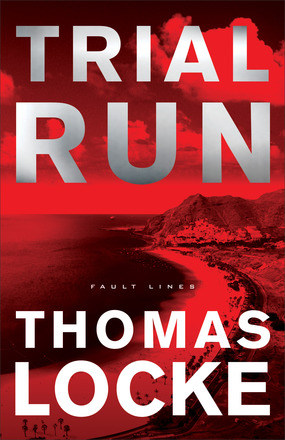 Thomas Locke begins a new speculative fiction series with a focus on telepathy. Dr. Gabriella Speciale has assembled an international team of elite
scientists with one goal in mind--to create and control out-of-body
experiences that transcend the limits of time and space. Reese Clawson's
mind-bending experiments aim to explode the boundaries of human
consciousness--and annihilate the opposition in the process. When
a terrifying discovery and a string of failed tests threaten to
dismantle both programs, the key to survival may reside in the mind of a
gifted grad student whose unsettling dreams have thrust him into the
center of a dangerous battle for control.
Thomas Locke begins a new speculative fiction series with a focus on telepathy. Dr. Gabriella Speciale has assembled an international team of elite
scientists with one goal in mind--to create and control out-of-body
experiences that transcend the limits of time and space. Reese Clawson's
mind-bending experiments aim to explode the boundaries of human
consciousness--and annihilate the opposition in the process. When
a terrifying discovery and a string of failed tests threaten to
dismantle both programs, the key to survival may reside in the mind of a
gifted grad student whose unsettling dreams have thrust him into the
center of a dangerous battle for control.I now have a better understanding of the term "speculative fiction." This book is not quite traditional science fiction (no androids or space travel or far-future technology), though it is heavy on futuristic science. It's one of those that sounds plausible, but it isn't actually within the realm of reality. A bit like how Jurassic Park is full of plausible-sounding science that doesn't work in real life. In any case, this is not a romantic suspense. It is more along the lines of the movie Paycheck.
Before reading this book, I recommend reading "Double Edge," the free novella prequel.* It introduces a couple of the main characters, plus it explains exactly how the out-of-body experiments--the ascents--work, which helps bring clarity to this story.
Since we don't find out what precisely is at stake until well into the story, it feels like the first part is largely a very long setup (which is not to say it is lacking in action, as it is not!). As this is the first book in a series, I didn't mind that so much. While the story ends in a good place, there are enough loose ends that you know the series has someplace to go.
I did expect more of a Christian bent to the novel; God doesn't figure into it at all. I feel like it ought to be allegorical, but if so, I haven't made the connection. If you like Ted Dekker's novel Black, then this one will probably appeal to you, though as I said, it is less heavy on the allegory.
Thank you Revell for providing a free book in exchange for a review; I was not required to make the review positive, and all opinions are my own.
* "Double Edge"is free at Christianbook and Amazon.
No comments:
Post a Comment